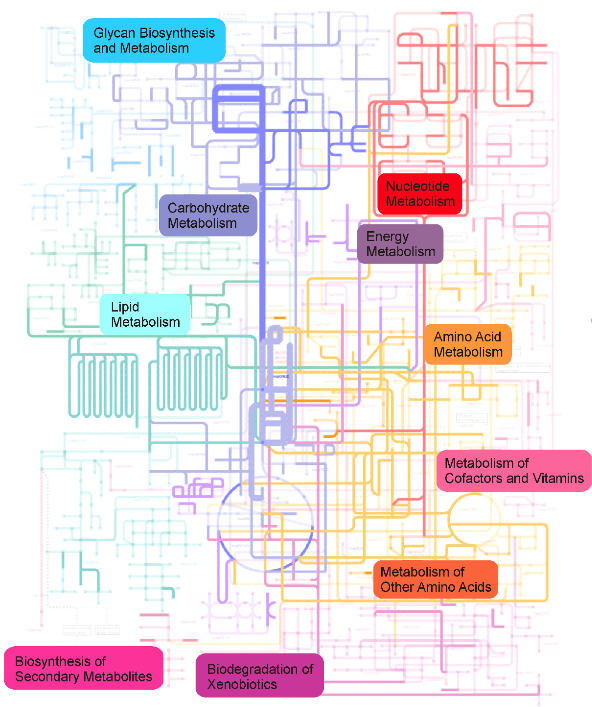Quite possibly, none.
Protein digestion begins in the stomach, with acidic hydrolysis (breaking apart by water) and enzymatic cleavage of protein peptide backbones. Protein-degrading enzymes are also abundant in the upper small intestine, which has a relatively low level of bacteria. By the time proteins get to the large intestine, where most of our bacteria reside, they have largely been broken down to peptides and amino acids.
When we look at the suite of enzymes produced by the microbiome as a whole – an ensemble called the metaproteome – what stands out are enzymes that process carbohydrates and lipids. We lack many of the enzymes required to digest carbohydrates, which are chemically quite diverse. We call these indigestible carbohydrates fiber. We’ve essentially outsourced the job of fiber digestion to our bacteria.
Here is a nice map of the major metabolic activities of the human intestinal metaproteome:
From Comparative Metaproteomics and Diversity Analysis of Human Intestinal Microbiota Testifies for Its Temporal Stability and Expression of Core Functions
Our bacteria spend a fair amount of effort on amino acid metabolism, but this is about converting one amino acid to another, or to various other compounds. These enzymes work on protein that has already been digested.
Probiotic supplements are not going to help with protein digestion. If this is a concern, my suggestions are to cook your food, chew it well, and lay off the triple whoppers with cheese and bacon that deliver a giant slug of protein and fat to your gut.
